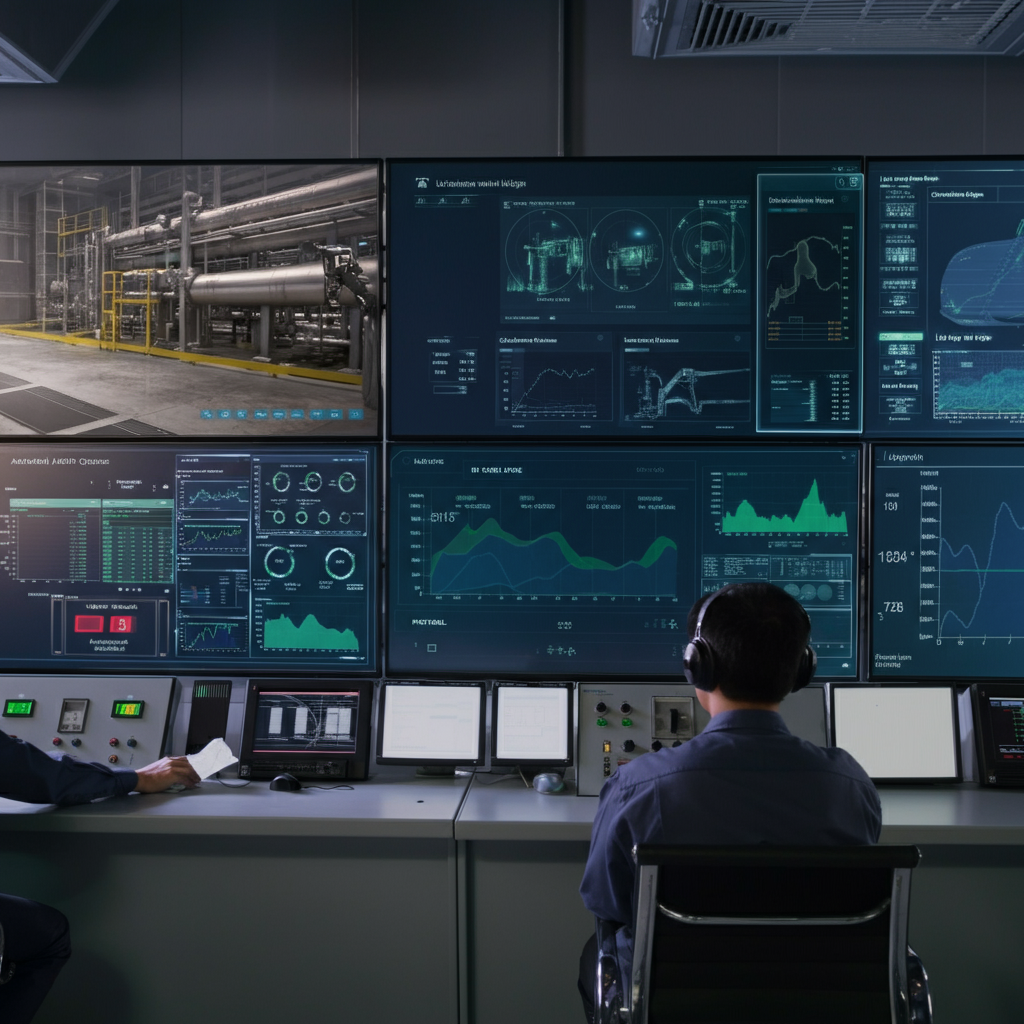Control room operators are the backbone of industries like nuclear, oil and gas, petrochemicals, and process industries. They manage intricate systems, oversee critical processes, and react quickly to unforeseen incidents to ensure safety, efficiency, and continuity in operations. But with Artificial Intelligence (AI) and machine learning breaking new ground, one question stands at the forefront of industry discussions: Can AI replace these operators?

Bjarne André Asheim
Recent posts by Bjarne André Asheim
5 min read
Can AI replace the control room operator?
By Bjarne André Asheim on 23/04/25 15:08
Topics: Artificial Intelligence AI Research
4 min read
Can we help the operator run a control room without alarms?
By Bjarne André Asheim on 16/02/21 08:53
Imagine a control room without alarms... Can you see it?
For decades, alarms have been the way we signal and inform the operator that something is about to happen. A sign to look closer at something or a warning. The problem has been that we have an increased need for automation or digitalization, and we are currently struggling to provide a better way for the operator to get data, other than by presenting an alarm. The development over the past decades from analogue alarm lamps, digitalizing those signals and putting them into a computer, has made the situation even harder for the operator. The challenge is that the modern digitalized systems have the same approach to alert and inform the operators with tools for help that are comparable to the analogue solution, but the number of alarms has increased exponentially. Every problem faced in the operation of a plant is fixed with another alarm implemented, meaning the situation for the operator is only getting worse. The more automation, the harder it is for the operators to understand the situation, react in time, and intervene in the correct way when needed.
Topics: Production optimization Alarm management
5 min read
Digitalization: The Key to Better Plant Performance?
By Bjarne André Asheim on 05/05/20 09:07
Most production losses and safety-related issues begin as minor incidents that escalate into larger problems. The question is, how can we leverage data to prevent these small incidents from becoming major disturbances? The ideal goal is to operate as close as possible to theoretical efficiency limits while maintaining effective incident management.
Tackling Plant Performance Challenges
Topics: Digitalization Artificial Intelligence Control Room Efficiency
3 min read
How to improve situational awareness by using data analytics
By Bjarne André Asheim on 21/04/20 08:54
Situational awareness is a critical element for operational success, especially in industries with complex and high-stakes environments like nuclear, hydrogen, ammonia, oil & gas and petrochemicals. By leveraging data analytics, companies can enhance their ability to monitor, predict, and respond to events with precision and speed. But how exactly can data analytics improve situational awareness for operators? Let's explore.
Topics: Digitalization Situational awareness
3 min read
The impact of human error on process safety and performance
By Bjarne André Asheim on 01/04/20 09:09
Industrial accidents remain a serious concern across sectors where humans interact with powerful machinery, extreme environments, and complex systems. While such incidents are devastating, affecting countless lives, their ripple effects often extend far beyond the immediate casualties, creating significant social, economic, and environmental damage.
Topics: Situational awareness Control Room Efficiency
3 min read
What is the value of real-time decision-making?
By Bjarne André Asheim on 24/03/20 09:54
The ability to make real-time decisions is at the heart of safe and efficient operations in most complex process industries and especially in the oil, gas and petrochemical industry. Control room operators are often required to act within seconds, relying on live data to manage unplanned disruptions and ensure smooth and secure processes. But what makes real-time decision-making so crucial, and how can organizations equip operators for success?
Defining Real-Time in Operational Contexts
Real-time decision-making refers to time-sensitive actions taken within seconds or minutes, informed by live data streams. This stands apart from less urgent “real-time” processes that focus on analyzing live data offline, often as part of back-office tasks like maintenance planning.
Topics: Digitalization Situational awareness Real-time
4 min read
How digitalization in production facilities can reduce downtime
By Bjarne André Asheim on 17/03/20 09:03
Downtime in production facilities is costly. Whether due to technical faults, operational challenges, or organizational issues, the consequences often include lost productivity and increased risks. Fortunately, digitalization offers powerful tools to minimize these disruptions. By leveraging data-driven insights and advanced technology, control room operators can enhance their situational awareness and make faster, more effective decisions. But with digitalization comes the challenge of ensuring it truly adds value without creating complications.









